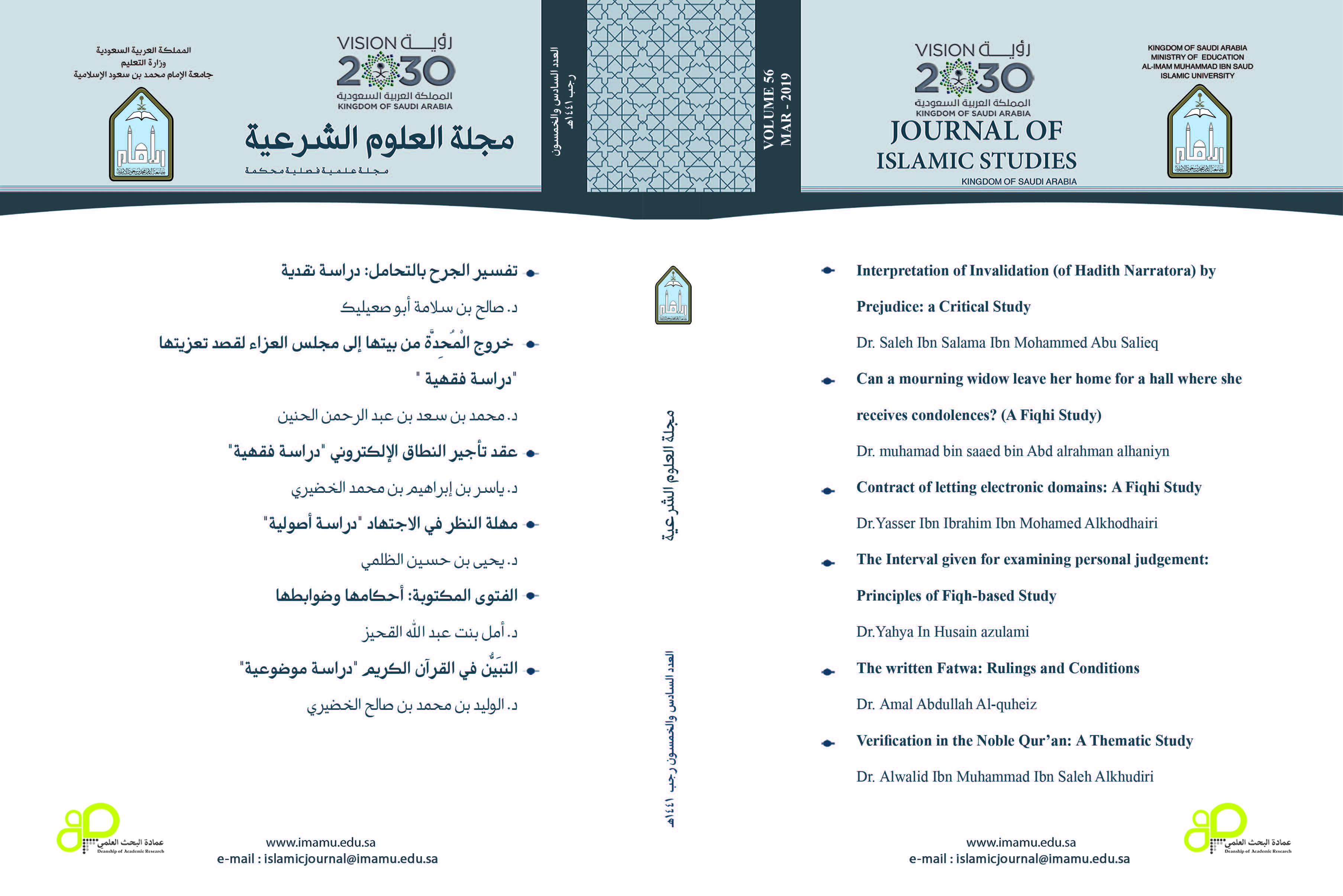The Interval given for examining personal judgement: Principles of Fiqh-based Study
Abstract
This paper discusses the interval given for examining ijtihad (personal judgement), i.e. the time in which the scholar employing personal judgement looks at the evidence, verifying its aims before the the statement of his ruling. This period is related to unanimity and personal judgement of textual evidence and other methods that are not based on texts as in analogical reasoning and public interests and other types of Ijtihad (personal judgement). During the period of investigation, the scholar employing personal judgement should not be asked about his opinion. This grace period could be an aspect of clemency and tolerance in Sahri’ah. If scholars are urged to give their ruling during this period, they would be troubled and distressed. The time for consideration becomes more required if the issue is complex like modern novelties. This also applies to judiciary-related issues because the judge’s statement cannot be repealed. Also, the fatwa issued on the air is considered a novel issue that requires some time for consideration because it is issued on the air and the mufti may not have enough time to reflect and consider it beforehand The paper also discusses the interval given for examining today’s collective ijtihad (personal judgement).




